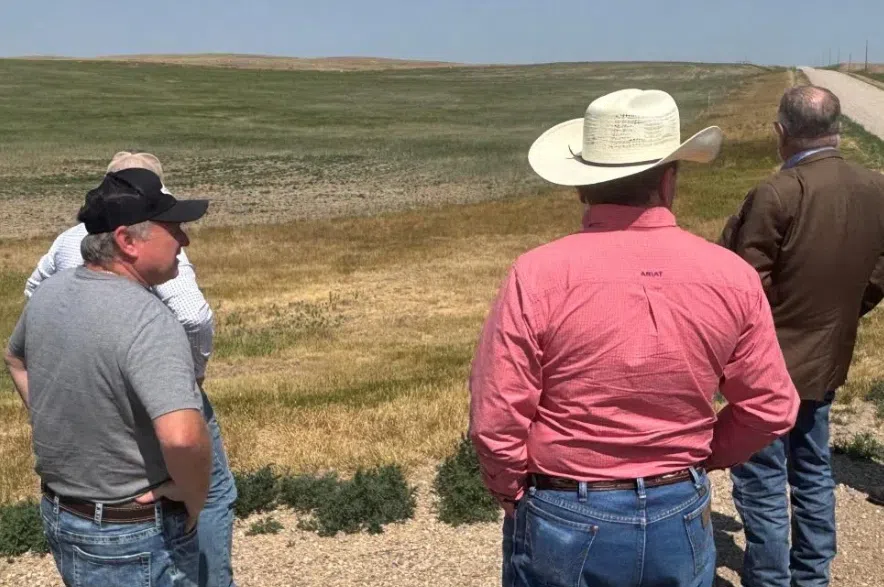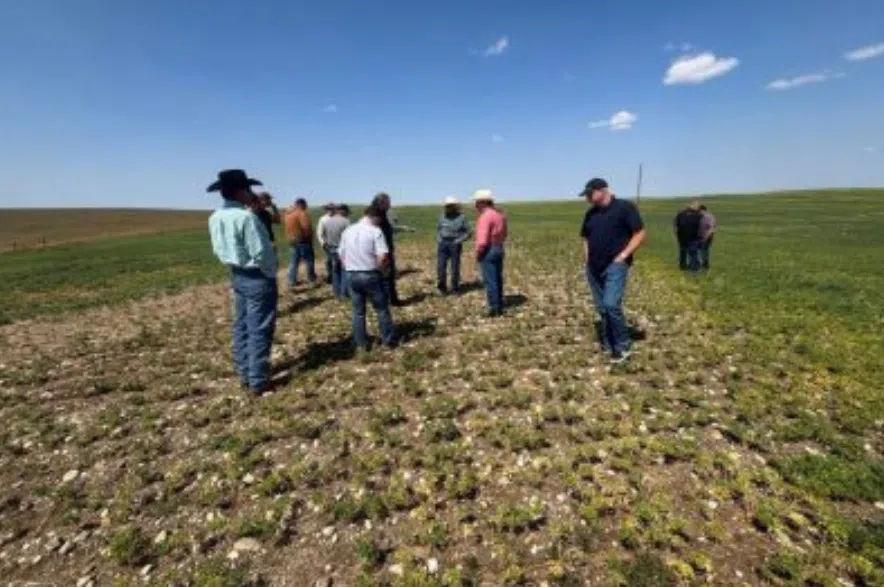As severe drought grips parts of Saskatchewan for a ninth straight year, farmers say time is running out for meaningful help and warn some operations may not survive without immediate action.
“We’re going to be losing anywhere from $50 an acre up to $100 an acre, and maybe even more,” said Quinton Jacksteit, reeve of the Rural Municipality of Big Stick, who recently met with provincial officials. “When you multiply that by the size of the farms nowadays, we’re not talking chump change. That’s a lot of money. I don’t know if they’re going to be able to survive another year like that.”
After the meeting, Jacksteit and other farmers handed the Saskatchewan Party government a list of demands, including reforms to crop insurance rules so farmers can harvest low-yield crops for seed without losing insurance payouts.
“We bought a farm insurance program, not a livestock insurance program,” Jacksteit said. “So if they write it off below five bushels an acre, why can’t we go out there with our combines and try and scrounge up a little bit of seed without that coming off of what they owe us for a crop insurance program? What’s the difference between the two?”
Read more:
- Heat wave pushes southwest farms closer to collapse after nearly a decade of drought
- Big Stick RM councillors slam Sask. agriculture minister over drought inaction
- ‘Can’t buy your way out of drought’: Southwest farmers continue to deal with dry conditions
He said under current rules, even minimal harvest reduce a farmer’s insurance claim:
“But they said any production that we create, even though we’re creating an expense for ourselves, would go against our claim for crop insurance.”
Trent Wotherspoon, the Saskatchewan NDP deputy agriculture critic, is touring drought-stricken areas this week, including Big Stick, which declared a local emergency last month.
“It’s been a month since we called on the Sask. Party government and the federal government to step up with urgent drought relief,” Wotherspoon said in a news release. “Since then, conditions have only grown more severe, and the government’s lack of action is putting family farms and ranches at risk.”

Local farmers and the Saskatchewan Agriculture Minister examine drought-affected fields near Maple Creek, discussing the toll of dry conditions on crops and pastures. (Daryl Harrison/X)
The NDP is calling for a drought action committee with rural municipalities and producers, reforms to risk management programs, and a 10-year tax deferral for producers who must sell breeding stock due to drought.
In response, Saskatchewan Agriculture Minister Daryl Harrison has outlined new provincial steps on social media that the government has doubled low-yield appraisal threshold to help farmers divert poor crops to feed, and extended the AgriStability deadline to July 31 to give producers more time access interim benefits.
“Our government has always been there for producers experiencing dry conditions, and this year won’t be different,” Harrison posted on X.
However, Jacksteit says those measures fall short of what’s needed.
“The bottom line is if we don’t get reform to our crop insurance program, we’re going to be here year after year after year,” Jacksteit said. “Because every year we have a drought, our coverage becomes less and less. And the problem is it’s going to take us years, even with good crops, to build coverage up to where it’s even worth something again, because that’s how the program works.”
Wotherspoon agrees, warning that without immediate action, the province risks losing family farms, ranches and the communities they sustain.
“What our government chooses to do now could shape the future of so many livelihoods, communities and entire regions of our province,” Wotherspoon said.











